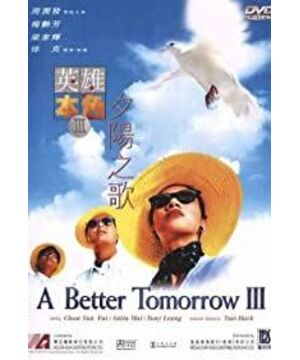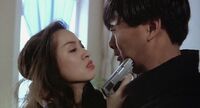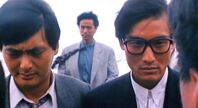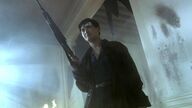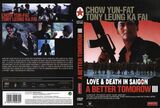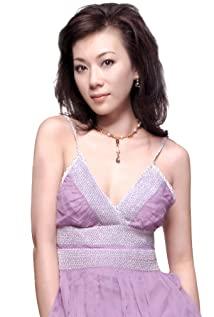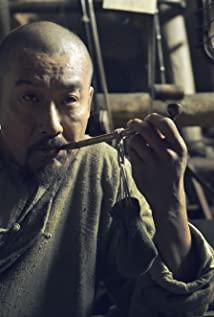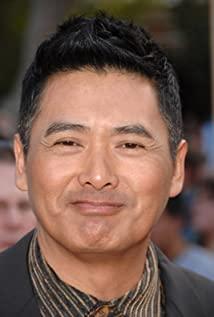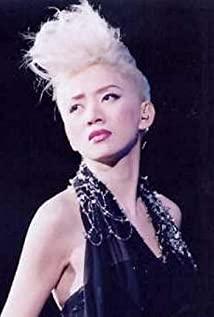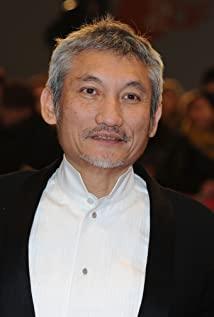Always regarded as an action film and entertainment film director, I am afraid that Tsui Hark is the most unwilling. In his directorial career, he never gave up the pursuit of grand narrative; personal destiny in troubled times is the theme he is most passionate about. "Huang Feihong" in the late Qing Dynasty, "Dragon Inn" in the era of Jinyiwei's rampant, and "Seven Swords" with the background of "Forbidden Military Order" are all like this. However, the troubled times in Tsui Hark's films are always just a specious background, a little bit of spicy pepper. From the real grand narrative, Tsui Hark is still too far away.
The same is true for "Song of the Sunset", although spared no effort to render the background of the troubled times when the Viet Cong was in power at the end of the Vietnam War, the main line of the plot is nothing more than the grievances and grievances between individuals. The seasoning status of the background of the times is fully exposed in a low-level mistake in the film: "Hong Kong will also return in 1997...", - Hey! The return of Hong Kong was handled by Uncle Xiaoping, okay? During the Vietnam War, we were busy with the Cultural Revolution...
Brother Fa was as dazzling as ever; Aunt Mei's performance was not successful, at least it could hold the scene. It is particularly worth mentioning that He Changqing played by Ren Saburo: calm and ruthless, but heavy on love and righteousness; strong and conceited, but careful; ambitious, and has his own set of world outlook and philosophy of life: "Do you think that Do you have a choice? You don’t! If you had a choice, tens of millions of people in Vietnam would not be refugees, no one would beg for food on the streets, and there would not be so many people starving to death in the world. Chosen!" - This line is sharp and fierce, shocking, and can be called the highlight of the whole film.
As for Leung Ka Fai's role, there's really not much to say. By convention, the boss must have a younger brother to help, so Chow Yun-fat will have Liang Jiahui by his side. In this film, his appearance is wretched, his words and deeds are reckless, and he is reminded of his later status as a big man in the film industry, which makes people feel that it is a bit funny. In the final decisive battle, Liang Jiahui was covered in blood, shirtless, wrapped in bandages, and jumped out aggressively with a submachine gun in hand. Looking at his lean two rows of ribs, I sprayed a sip of tea onto the screen with only four words in my heart, "Mini Rambo"!
Hong Qi in "Dong Xie Xi Du" said: "My sword is not as fast as before. I used to be faster because I was direct". Compared with the previous two "True Colors of Heroes", the plot of "Song of the Sunset" is far more complicated. It is no longer a contradiction between right and wrong, a simple and sincere brotherhood, so it is no longer the kind of hearty love and hatred. Emotional entanglement and the struggle of fate have become the theme of this film. At the end of the story, the background of the times that Tsui Hark painstakingly created finally brought the role of peppercorns into full play: in the face of troubled times, the lone hero can only survive and survive; the grievances of the little people also become ridiculous and insignificant. When the wounded Anita Mui accompanies the dying He Changqing, all kinds of grievances and grievances suddenly vanished; the blood feud between Chow Yun-fat and He Changqing also instantly vanished; instead, there was some kind of spiritual connection and resonance.
As a result, when the plane took off, Chow Yun-fat held the dead Anita Mui in his arms, and looked down at the ants-like chaotic and panic-stricken refugees in the sunset, his vision began to widen and his emotions became deep. .
View more about A Better Tomorrow III: Love and Death in Saigon reviews


